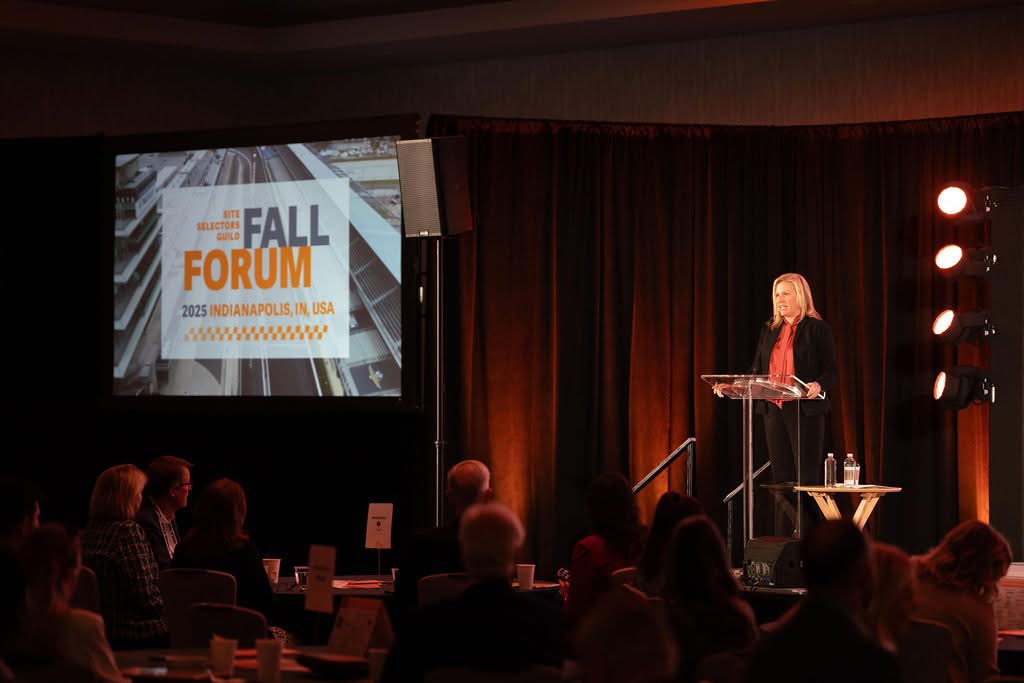Insights from the Site Selectors Guild’s 2025 State of Site Selection survey reveal that tariffs, talent, and site readiness are reshaping corporate location decisions and driving new investment strategies.

By Jessica Heer, Executive Vice President, Fort Worth EDP | Monday, Oct. 27
Corporate site selection has always been about balancing opportunity with risk, but in 2025, the equation has changed. According to The 2025 State of Site Selection survey shared at the Site Selectors Guild’s Fall Forum conference, today’s decisions are being shaped by volatility in tariffs, energy supply, land availability, and workforce dynamics. Companies are rethinking not just where they operate, but how they align place, infrastructure, and people to manage uncertainty and sustain growth.
Tariffs: The Double-Edged Sword
Tariffs, once a straightforward cost factor, have become a strategic wildcard. Shifts in trade policy are forcing companies to plan for multiple futures rather than rely on a single forecast. The Site Selectors Guild reports that 97 percent of its industrial consultants agree tariff uncertainty is significantly impacting site decisions, creating hesitation for some companies and acceleration for others.
While some projects have paused, others have moved forward rapidly to get ahead of policy changes. The volatility has also driven a wave of foreign direct investment to the United States, as companies seek stability and proximity to customers amid global disruption.
Site Readiness: From Choice to Availability
Site readiness has become the new currency of competitiveness. Companies no longer start with a list of preferred regions and then choose among sites. Instead, they begin by asking whether any suitable, development-ready land is available.
The Guild’s research found that 42 percent of consultants cite a lack of development-ready sites as a major concern. Communities that can demonstrate permitting efficiency, utility capacity, and known development timelines are winning projects, while others are left out of consideration.
Talent: The Constant That Comes Full Circle
Talent remains critical, but its role has evolved. Early in the process, power and site readiness dominate. Once those hurdles are cleared, workforce quality becomes the deciding factor. Companies are now evaluating not just labor availability but also “skills of the future” and local training capacity.
According to the report, 81 percent of Guild members say integrating community and economic development to address housing, childcare, and income gaps is becoming essential for long-term workforce success. Communities that combine strong training infrastructure with a high quality of life are gaining an edge.
Office: Recovery and Reinvention
After years of uncertainty, the office market is showing signs of stabilization and purpose-driven growth. The Guild found that 31 percent of consultants specializing in office projects report an increase in project volume and scale from the previous year. Most companies have adopted some form of in-office or hybrid work, reigniting demand for high-quality spaces designed to attract and retain talent.
Rather than simply returning to pre-pandemic norms, employers are using office investments to reinforce culture, collaboration, and connection. Class A, amenity-rich spaces in vibrant urban or mixed-use settings are seeing renewed interest.
The Bottom Line: Site Selection Is Risk Management
Today, site selection is less about cost optimization and more about resilience. Companies are planning for multiple scenarios, modeling the impacts of tariffs, energy constraints, and labor availability. As the Guild notes, success depends on adaptability, foresight, and managing risk through readiness and reputation.
Why This Matters for Fort Worth Economic Development
Fort Worth’s momentum speaks for itself. The city’s strategic location, business-friendly climate, and strong workforce are attracting global investment and fueling innovation across sectors. In an era when companies seek not just sites but partners in growth, Fort Worth stands out for its resilience, readiness, and ability to turn opportunity into results.
—
The Fort Worth EDP works directly with companies, site selection consultants, and corporate real estate professionals who are interested in moving or expanding to Fort Worth, Tarrant County, and the surrounding areas. If you’d like to learn more about Fort Worth, please schedule a meeting with us or check out our Why Fort Worth page.